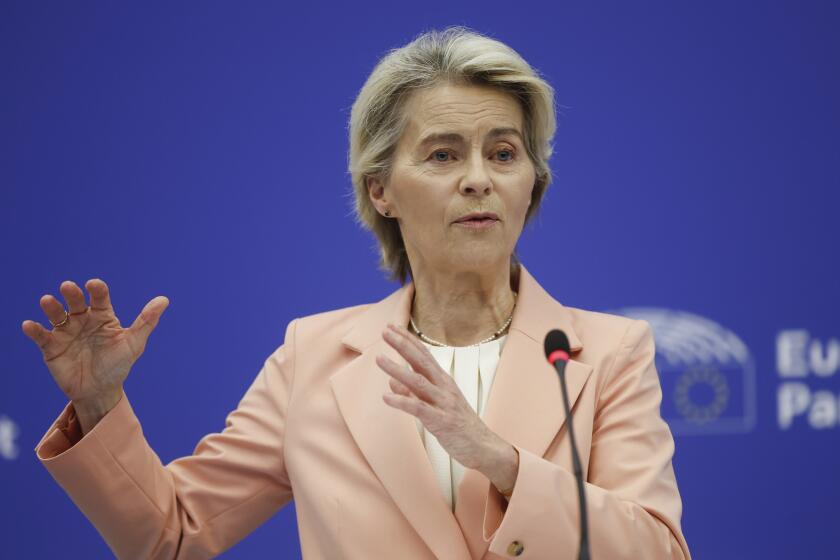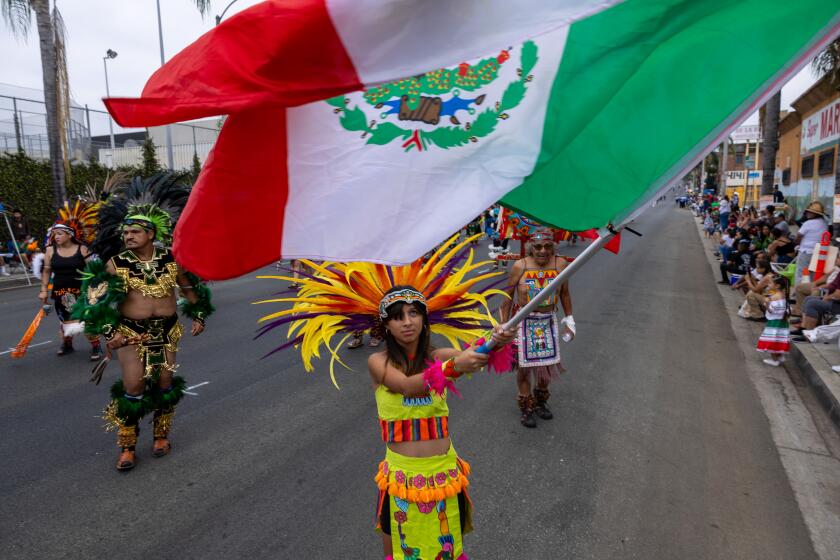Political Wars in Religious Garb
In Nigeria, Muslim and Christian militants are killing one another in widening intercommunal violence. Indonesia, Egypt and Lebanon also have been swept up by the most intense strife between Christianity and Islam in generations.
Yet beneath the outburst of religious violence, a transformation is taking place with significant implications for the future coexistence of Islam and Christianity. A dramatic shift at the ballot box in Iran and the election of Abdurrahman Wahid as president of Indonesia, the world’s largest Muslim country, weigh far more heavily for the future than sectoral violence sparked by religious extremists.
The sectarian conflict that broke out last week in the Nigerian city of Kaduna after the imposition of Islamic law threatens secular rule across the powerful African nation, which has been struggling to overcome 16 years of military rule. The introduction of Islamic Sharia law in the impoverished state of Zamfara and possibly in other northern states could undermine the central government of President Olusegun Obasanjo. “It has nothing to do with religion,” one Islamic scholar said. “It is politics, pure and simple.”
The power grab cloaked in Islamic piety poses a serious challenge to Obasanjo’s 9-month-old rule and clouds the future of Africa’s most populous nation. If other Nigerian states follow suit, it may split the country apart. Riots in northern Nigeria in 1967 between Muslim Hausa speakers and Christians helped to trigger the secession bid by the predominantly Christian region of Biafra. Violence and famine claimed thousands of innocent lives before Biafra was reincorporated into Nigeria.
The current bloody clashes between Muslims and Christians are overshadowing the Islamic world’s attempts to grapple with new issues. For instance, Iran is far from a democracy, but results of the Feb. 18 elections indicate that liberal reformers may gain an overwhelming majority in parliament, revitalizing a push for political change.
It would of course be unjust to identify the Islamist power-mongers of Nigeria or Afghanistan and extremist militants such as Osama bin Laden with the Islamic religion itself. Indonesia’s President Wahid, a prominent Muslim scholar, is the antithesis of Iran’s late Ayatollah Ruhollah Khomeini, a rigid funda- mentalist. Even before he was elected, the frail Indonesian scholar filled stadiums with people eager to listen to his message of tolerance. He is as at ease with the writings of Jewish philosopher Chaim Potok or Catholic Liberation theologian Leonardo Boff as with the Koran.
Quite the opposite of Wahid’s message is the violent imposition of Sharia law in Nigeria’s Zamfara state. There the true issue is one of secular political power and usurpation, not a clash of Islam and Christendom.
More to Read
Sign up for Essential California
The most important California stories and recommendations in your inbox every morning.
You may occasionally receive promotional content from the Los Angeles Times.










